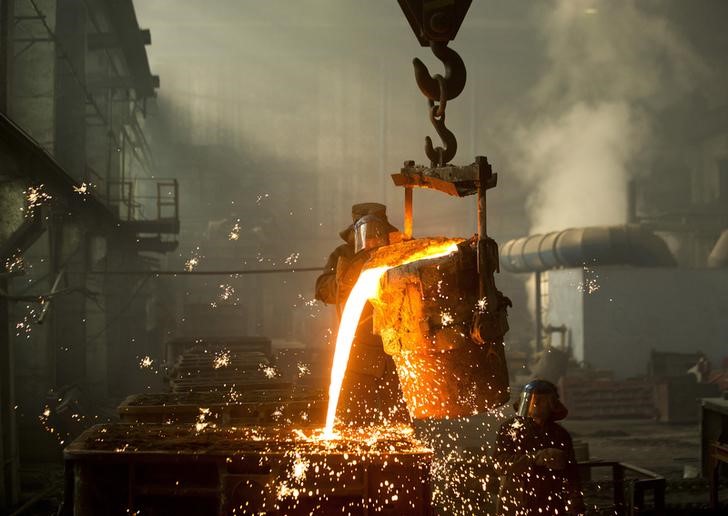* Plants in Tangshan cut production for the rest of July
* Firm demand, expected monetary easing underpin prices
* Coke futures surge over 5 pct
* Steel, iron ore and coking coal jump more than 3 pct
SHANGHAI, July 12 (Reuters) - Chinese steel-related futures surged on Tuesday as a government-ordered cut in industrial production in a key producing region raised concerns of supply interruptions, while prices were underpinned by expectations of further economic stimulus.
Iron ore sintering plants in Tangshan, a big steel producing city in northern Hebei province were ordered to cut output for the rest of this month, and cuts will deepen in the last week of July. plants, cement producers, and ore miners will all have to partially and fully cut production at different stages as the local government aims to improve air quality in the city that is close to capital Beijing.
"The weak season is not weak. The supply interruptions and solid demand have pushed up prices. And we expect China's steel market to remain strong generally in the third quarter," said Yu Yang, an analyst with Shenyin & Wanguo Futures in Shanghai.
The October benchmark contract for construction material rebar on the Shanghai Futures Exchange SRBcv1 surged 3.7 percent to 2,514 yuan ($375.9) a tonne by 0240 GMT to a more than two-month high.
The most-traded metallurgical coke futures DCJcv1 on the Dalian Commodity Exchange surged nearly 6 percent to 1,006.5 yuan a tonne by 0240 GMT.
Coking coal futures DJMcv1 climbed 3.8 percent to 758 yuan a tonne and iron ore futures DCIOcv1 surged 3.6 percent to 443 yuan, respectively.
The open interest - the total number of contracts owned by investors - for rebar, coking coal and coke futures have all surged, suggesting traders are bullish on the steel-related futures.
"Output cuts in Tangshan and low inventories by steel mills suggest the rally in the steel market is not over yet," said Wang Yilin, an analyst with Sinosteel Futures in Beijing.
"The high expectation of Chinese easy monetary policy has also promoted funds to move to commodities, particularly, steel futures," he added.
Analysts expect the world's second-largest economy to lose further momentum in the second half of the year, prompting the government and central bank to roll out more support measures. = 6.6877 Chinese yuan renminbi)
